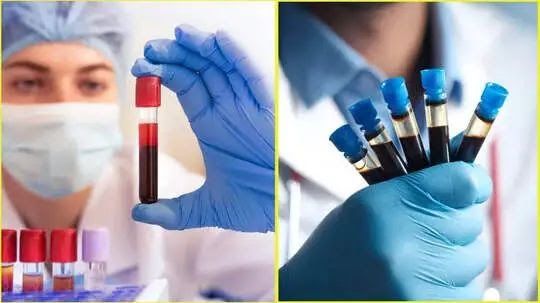This may sound like a dream to you, but now science has made it true.
Scientists have discovered that Pinprick Blood Test can tell which disease you are at risk of getting in the future, 10 years before the symptoms of the disease appear. The idea behind this idea is that why wait for symptoms to appear because now doctors will be able to identify early on which people are at high risk.
With just a small drop of blood from a finger, researchers can measure hundreds and thousands of molecules such as proteins, metabolites and markers of cell damage. By combining all these, they create a kind of pattern, which will later tell whether you are at risk of cancer, heart disease, diabetes, dementia or other diseases.
Recently, scientists have done such major research in which they simultaneously measured thousands of types of proteins, fats, sugars and small molecules present in the blood. By looking at all this, they find such patterns which can help in knowing which disease a person may suffer from in the next 10 years.
These patterns are combined with people's long-term health records. With this, scientists create models that capture early changes in the body long before symptoms of the disease appear.
Samples were taken from the UK Biobank in a large project. This led to the creation of very accurate protein signatures, from which the risk of dozens of diseases could be predicted up to 10 years in advance.
What are scientists really finding?
Different research teams have identified such protein signals that can predict the risk of cancer, brain related diseases and a total of 67 types of diseases in the next 10 years. In some cases, these tests have proven to be better than older or standard medical methods.
Other studies have measured biomarkers of diseases such as Alzheimer's using only small finger-prick samples. The special thing is that their results are the same as those of blood taken from a vein (venous blood test). This means that in future even a small finger prick test will be able to detect brain diseases.
All these discoveries indicate that in the future, we will be able to find out about the risk of many diseases simultaneously with just a small drop of blood.
Can bring revolution in health sector
If we understand in simple words, most of the diseases are detected only when the symptoms start appearing. In such a situation, treatment becomes difficult, long and expensive. Due to late detection, the quality of life of the patient also deteriorates and sometimes the life is also shortened. If there is a reliable early warning blood test, which works with just a small drop of blood, then the medical system can be completely changed.
How?
- Doctors will be able to identify people at risk before the disease occurs.
- People will be able to start lifestyle changes, regular checkups or mild, early treatment in time.
- For research of new medicines, it will be easier to find those people whose disease is at a very early stage.
- Inexpensive pinprick tests will quickly identify communities where the risk of disease spread is high, thereby reducing the burden of severe cases.
Challenges and some key points
Although the initial results are very promising, experts say that this test still needs caution and more investigation and testing. Currently, many models have been created and tested only on specific data sets such as the UK Biobank. It is also necessary to test them in different countries and different health systems.
False Positives: That is, those who have been declared high-risk, but never get sick, this can lead to unnecessary worry, tests and expenses.
False Negatives: That means those whose threat was ignored may feel false security.
There are also technical challenges, such as the correct way to draw blood (from a finger or a vein), the right way to store the blood, and determining the clinical level that is actually helpful to the patient. However, initial research is very positive, but further investigation, testing and caution is needed before bringing it into general use.





